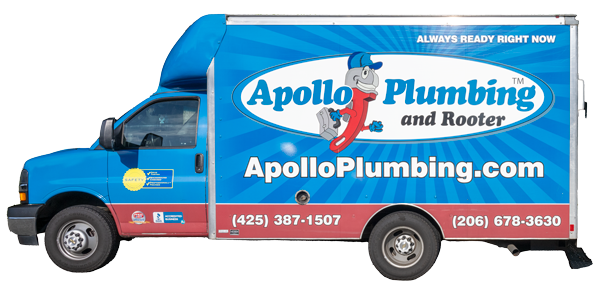Different Types of Home Water Treatment Systems
As a homeowner, ensuring the safety and quality of your home’s water supply should be a top priority. With various types of contaminants and pollutants present in our water sources, it is essential to have an effective water treatment system in place.
We will discuss the different types of home water treatment systems available and their benefits, helping you make an informed decision for your household.
What is a Water Treatment System?
A water treatment system is a multi-step process that removes impurities and contaminants from water, making it safe for consumption or other domestic purposes. The exact steps and methods used may vary depending on the specific type of treatment system. However, most systems follow a general process that includes filtration, sedimentation, disinfection, and often some form of chemical treatment.
The goal of a water treatment system is to produce clean, safe, and reliable water that meets regulatory standards. This ensures that the water you use for drinking, cooking, bathing, and other household needs is free from harmful substances that can pose health risks. In addition to providing safe drinking water, many home water treatment systems also aim to improve the overall taste, odor, and appearance of water. This can make a noticeable difference in the quality of your daily life.
Overall, a water treatment system is an essential investment for any household looking to ensure the safety and purity of their water supply. With various options available, it is important to understand the different types and factors to consider before
choosing the right system for your home.
So, careful consideration and research are crucial in making an informed decision that meets your specific needs. With a water treatment system in place, you can have peace of mind knowing that your family is using clean and safe water for all their daily activities.
Types of Home Water Treatment Systems
- Reverse Osmosis Systems: A popular choice for homeowners, reverse osmosis systems use a semi-permeable membrane to filter out impurities and contaminants from the water. It can remove up to 99% of dissolved solids, making it highly effective in purifying drinking water.
- Water Softening Systems: Hard water is a common problem in many households, leaving behind mineral deposits that can cause damage to appliances and plumbing. Water softening systems use ion exchange technology to remove calcium and magnesium ions from the water, making it softer and safer for household use.
- UV Disinfection Systems: UV disinfection systems use ultraviolet light to kill harmful bacteria and viruses present in water. It is a chemical-free method and is highly effective in eliminating microorganisms, making it a popular choice for households with well water.
- Activated Carbon Filters: Activated carbon filters are used to remove organic compounds, chlorine, and other chemicals from the water. These systems are known for their effectiveness in improving the taste and odor of water.
- Distillation Systems: Distillation systems use a heating and cooling process to remove impurities from water. It is a chemical-free method and can effectively eliminate most contaminants, making it suitable for households with high levels of pollutants in their water supply.
By understanding the different types of water treatment systems available and their benefits, you can make an informed decision to ensure safe and clean water for your household. Remember to consider all factors and choose a system that best suits your specific needs and budget.
With the right water treatment system in place, you can enjoy peace of mind knowing that you are providing your family with the highest quality water. So don’t wait, start researching and find the perfect water treatment system for your home today.
Factors to Consider When Choosing a Water Treatment System
Water Quality
The first step in choosing the right water treatment system is to determine the quality of your water. You can get your water tested or check with your local water supplier to understand the types of contaminants present in your water.
- Contaminant Removal: Different treatment systems are designed to remove specific contaminants, so it is essential to know which ones are present in your water and choose a system that can effectively eliminate them.
- Maintenance and Cost: Consider the maintenance requirements and cost of the system you are interested in. Some systems may require regular filter replacements or professional servicing, which can add to the overall cost.
- System Size: The size of your household and your daily water usage should also be taken into account when choosing a treatment system. Some systems may not be suitable for larger households or high water consumption.
Aside from immediate benefits, consider the long-term advantages of investing in a water treatment system, such as improved health and protection against future water quality concerns.
By considering these factors, you can choose the right water treatment system that best suits your household’s needs, providing you with safe and clean water for years to come. Remember to regularly maintain and service the system as recommended by the manufacturer to ensure its effectiveness and longevity. So, don’t wait any longer, invest in a home water treatment system today! Your family’s health and well-being are worth it.
Understanding the types of water treatment systems, their benefits, and other factors choosing one can help you make an informed decision for your household. By investing in a water treatment system, not only are you improving the quality of your water, but also promoting a healthier and more eco-friendly lifestyle.
Benefits of Home Water Treatment Systems
- Improved Water Quality: The primary benefit of having a water treatment system is the improved quality of your water. With the right system, you can eliminate contaminants and pollutants, making your water safer for consumption and other household uses.
- Cost Savings: Investing in a water treatment system can save you money in the long run by reducing the need for bottled water or costly repairs and replacements to appliances and plumbing caused by hard water.
- Eco-Friendly: Water treatment systems are a more environmentally friendly option compared to plastic bottled water, which contributes significantly to pollution. With a treatment system in place, you can reduce your carbon footprint.
With a water treatment system, you can have peace of mind knowing that your family is consuming and using safe and clean water.
Final Thoughts
Understanding the different types of home water treatment systems available can help you make an informed decision for your household. Consider the factors discussed above and choose a system that best fits your needs and budget. With a treatment system you can enjoy the benefits of improved water quality while reducing your impact on the environment. So, take the necessary steps to ensure the safety and quality of your home’s water supply today!
With various types of contaminants and pollutants present in our water sources, it is essential to choose the right treatment system for your household’s specific needs. By considering factors such as water quality, contaminant removal, maintenance and cost, and system size, you can make an informed decision.
Investing in a home water treatment system not only improves the quality of your water but also saves you money in the long run. Also it helps reduce your impact on the environment. So don’t wait any longer, take action to ensure safe and healthy water for you and your family today!
Remember, understanding different types of home water treatment systems is a crucial step toward ensuring the safety and well-being of your household. So make the right choice and invest in a treatment system that suits your needs. Your family’s health is worth it!

